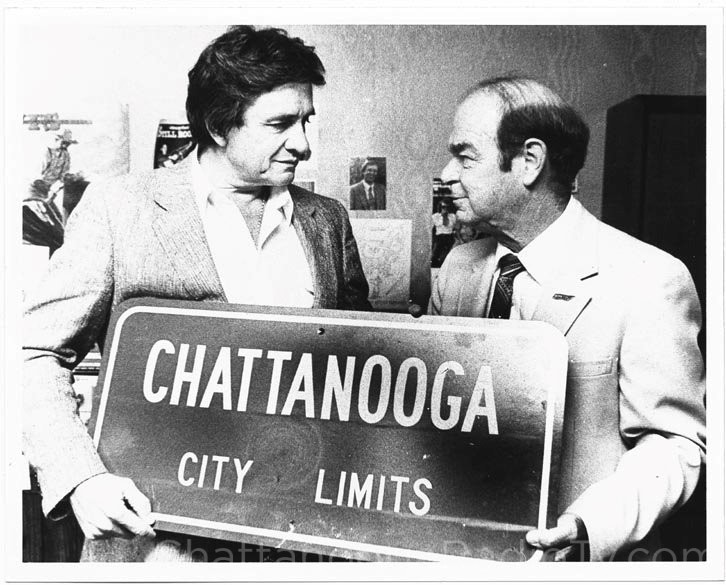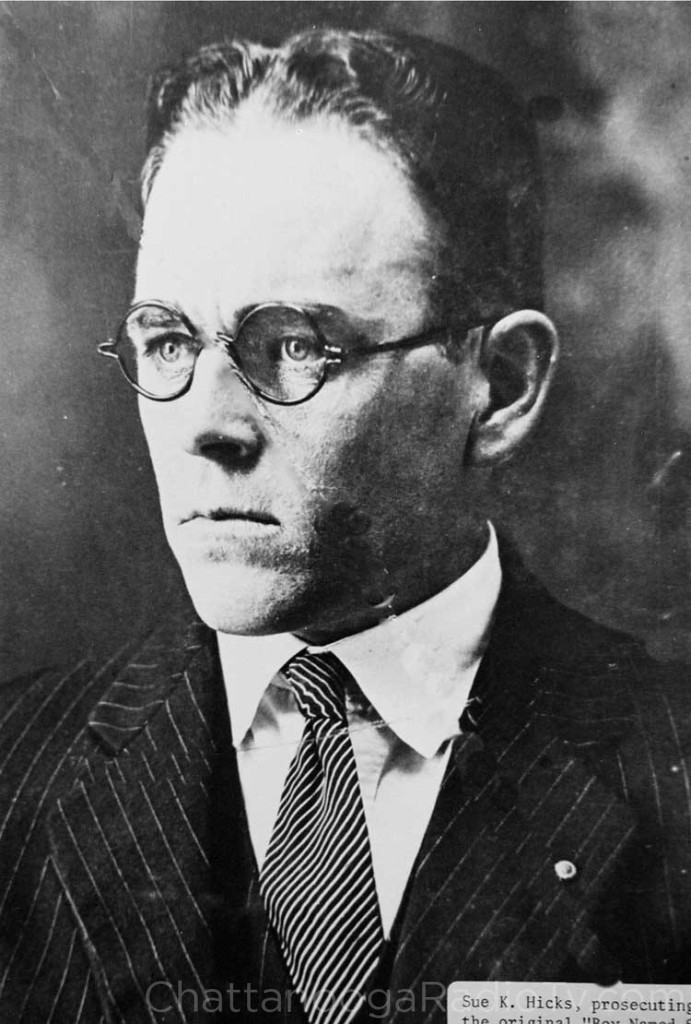“Well my daddy left home when I was three, and he didn’t leave much to Ma and me, except this old guitar and an empty bottle of booze. Now I don’t blame him because he run and hid, but the meanest thing that he ever did, is before he left, he went and named me Sue.”
Shel Silverstein wrote those words, and Johnny Cash sang them back in 1969. You can still hear “A Boy Named Sue” on oldies stations today. When the song came out, Johnny was enjoying a career resurgence. He’d had his ups and downs since he hit the music scene with fellow rockabilly singers Carl Perkins, Jerry Lee Lewis and Elvis Presley from Sun Records in Memphis. Mixed in with hits like “Ring of Fire” and “I Walk the Line” were well-publicized run-ins with the law, including a few around Chattanooga.
The Man in Black enjoyed a kinship with folks in prison. He’d spent a little time in jail himself. Although his misdeeds were never violent, he sure sounded authentic when he sang, “I shot a man in Reno…just to watch him die…” in “Folsom Prison Blues.” He had written the song in the early 1950s, and released it in 1955. Thirteen years later he performed it while recording a live album, where else but Folsom Prison in California. The song, and the album, were very successful, so a year later he went back to jail (to perform), this time at San Quentin in California. That’s where “Sue” comes in.
Johnny’s wife June had heard Silverstein perform his novelty song at a “guitar pull” in Nashville, defined as a gathering where songwriters would play their latest tunes for each other. Silverstein, best known for his children’s books, reportedly had two inspirations for his song. A friend who happened to be a fellow entertainer was a man named Jean, and Silverstein was familiar with Jean’s frustrations of having a female name. But the song’s actual namesake is believed to be Tennessee’s own Sue Hicks, a well-known legal figure who had first made a name for himself in 1925 at the Scopes Trial in Dayton, Tennessee. He was on the prosecution team, led by William Jennings Bryan. Hicks later served as a Circuit Court Judge in Tennessee for 22 years. During his career, he tried over 800 murder cases and thousands of others, but admitted he was best known for his unusual first name. Unlike the tortured “Sue” in the hit song, Judge Hicks said he had a good relationship with his father, who bestowed the name upon him in honor of his mother Susanna, who died shortly after Sue was born. Judge Sue Hicks died in 1980 in Sweetwater, Tennessee at the age of 84.
Unlike most hit records of that era, “A Boy Named Sue” had a very loose, unrehearsed feel to it. It certainly wasn’t overproduced. If it sounds like the musicians were making it up as they went along, that isn’t too far from the truth. On the live album version, you can hear Johnny ask guitarist Carl Perkins to hang around for another song or two (including “Sue.”) Sure enough Carl had been given the lyrics only a few hours before, and was asked to “put some chords to this.” Johnny himself didn’t know the words. He had never performed the song in front of a microphone. As you’ll see in the video below, he’s reading the words off a sheet of paper on his music stand, and his eyes rarely leave that paper. If his reactions, and those of the audience sound real and spontaneous, it’s because they’re all hearing Sue’s story for the very first time! You’ll also notice the actual live recording is not quite what you’ve heard on the radio all these years. That bleeped-out expletive was kept away from our innocent ears back in 1969, although now it’s hard to avoid on network TV. Also, a talented tape editor managed to splice out the word “damn” from the song’s closing line. All we heard was, “And if I ever have a son…I’m gonna name him…Bill, or George! Anything but Sue! I still hate that name!” It turns out “any thing” wasn’t one word after all.
“I busted a chair right across his teeth, and we crashed through the wall and into the street, kicking and a’ gouging in the mud and the blood and the beer.”
This not-so-friendly father and son reunion, “in Gatlinburg, in mid-July” sure paints a picture, doesn’t it? Shel Silverstein was awfully good at that, selling 14 million books and writing more hit songs, including “Cover of the Rolling Stone” and “Sylvia’s Mother” for Dr. Hook and the Medicine Show. “Sue” was the big one though, winning Silverstein a Grammy for Best Country Song, and Cash for Best Male Vocal Performance (1969). It peaked at #2 on the charts, kept out of the top position by “Honky Tonk Women” by the Rolling Stones. (That song may have also included a naughty word or two, but I couldn’t understand what Mick Jagger was saying, then or now.)
What did Judge Sue Hicks get from all this additional notoriety? Good ol’ Johnny sent him a couple of personally autographed photos: “To Sue, how do you do?”
Of course Judge Hicks is long gone, Silverstein died in 1999, and Johnny left us in 2003. To borrow a line, I never met ’em before they died, but if I could, I’d thank them for “the gravel in your guts and the spit in your eye,” and I’d thank June for talking Johnny into performing that song. As usual, she steered him in the right direction.





And as Paul Harvey used to say “Now you know….the Rest of the Story”
Great article, David. With a tear a smile, I’ve enjoyed every word.
I was in elementary school when this song came out, and the boys teased me mercilessly, chanting the well worn lyrics. What a great back story. This blog is a bottomless pit of interesting information.